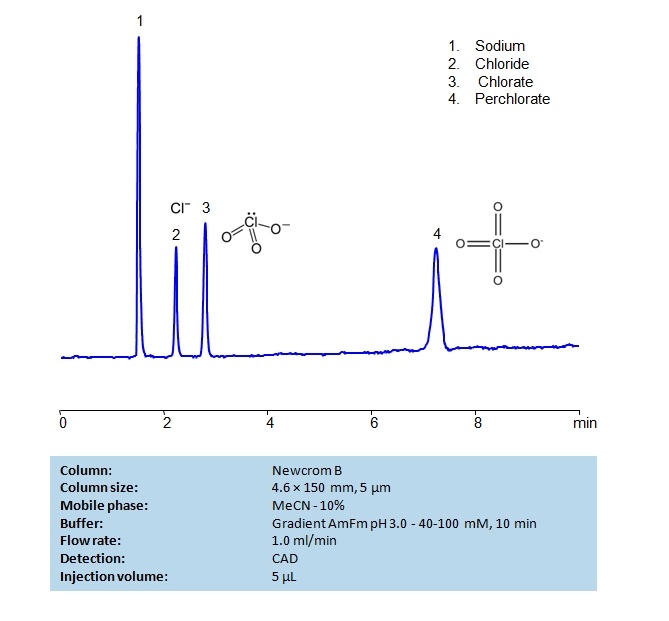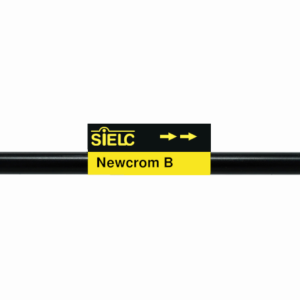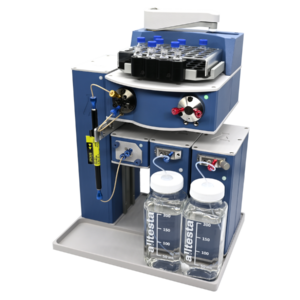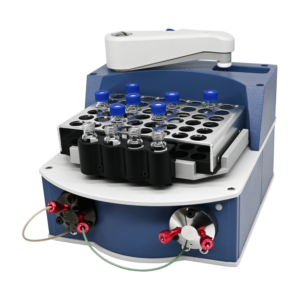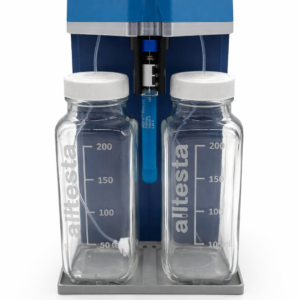HPLC Method for Chlorate, Perchlorate, Sodium Chlorate, Chloride on Newcrom B by SIELC Technologies
High Performance Liquid Chromatography (HPLC) Method for Analysis of Chlorate, Perchlorate, Sodium Chlorate, Chloride
Main source of contamination of environment by perchlorates are rocket fuels, car airbags, and fireworks.
EPA developed regulation of the perchlorate level in drinking water which already adapted by several states.HPLC analysis of [compound] with Newcrom B. Includes separation method, chromatogram, and mobile phase.
The most convenient, universal and very sensitive way to measure perchlorate is chromatography.
SIELC developed a simple, rugged, and selective HPLC method which allows to measure perchlorate in different matrices including drinking water.
This method allows to measure simultaneously other chloro containing ions such as chloride, and chlorate.
The method shows high selectivity and specificity.
The mobile phase is a simple mixture of water acetonitrile and ammonium formate.
The column used in the analysis has advanced surface chemistry with long chain holding a terminal positively changed functional group.
| Column | Newcrom B, 4.6 x 150 mm, 5 µm, 100 A, dual ended |
| Mobile Phase | MeCN/H2O – 10/90% |
| Buffer | Gradient AmFm pH 3.0 – 40-100 mM , 10 min |
| Flow Rate | 1.0 ml/min |
| Detection | CAD |
| Class of Compounds | Ions, Hydrophilic, Ionizable |
| Analyzing Compounds | Chlorate, Perchlorate, Sodium Chlorate, Chloride |
Application Column
Newcrom B
Column Diameter: 4.6 mm
Column Length: 150 mm
Particle Size: 5 µm
Pore Size: 100 A
Column options: dual ended
Chloride
Perchlorate
Sodium Chlorate

